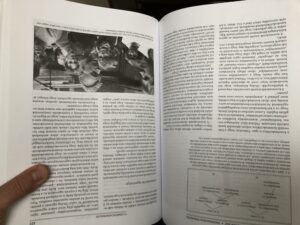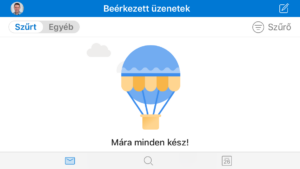But Robert doesn’t give up easily, he made us visit the client and listen to their needs. There we all got into the spirit of things and the development of th Act2Manage app was launched. It’s been seven years (or eight since the first meeting) since then, we’ve rolled it out to a number of national and multinational companies, but perhaps we’re most proud of the fact that it’s being used beyond our borders. Companies such as AUDI’s headquarters in Ingolstadt (after the Győr motor factory), the air freight forwarder Cargolux in Luxembourg, or even Unicredit Bulbank, Bulgaria’s largest bank. And as a result of the tireless efforts of my colleague Laszlo Filep, one of the largest European operational excellence companies, REOSS, became our partner to add Lean Management content to the Act2Manage app.
We’ve learned a lot from our customers over the past 7 years, here are the ten most important lessons:
- A mobile phone app can indeed provide a quick and practical response to the “at the moment of need” learning situations, when motivation to learn is at its highest.
- Encouraging concrete action and making a commitment at the end of the microlearning process will increase the likelihood of trying out and practising learning content.
- While not all managers are motivated by gamification tools (points, trophies, levels, progress bar, etc.), many are.
- User feedback shows that simplicity is much more valued by managers than glitzy content (as opposed to some HR people who think the opposite.) Users are much more likely to read a short piece of text content when they need it in their day-to-day work than to watch a video between meetings.
- What matters in digital learning is not what generation the user belongs to (i.e. it doesn’t matter if they are Generation X, Y or Z), but how eagerly they want to learn.
- While the app can stand on its own as a leadership development tool, it has a much greater impact when combined with in-person or hybrid programmes.
- Facilitation is of huge importance because there is a lot of information noise in the workplace. Combining the use of the app with current corporate actualities (performance review cycles, change initiatives, ongoing development programmes, etc.) will increase its relevance and significantly increase the usage rate.
- User activity is not distributed according to a bell curve but according to a power function (Pareto), i.e. there is a top 20% who are highly active. However, as I explained in the previous section, with the help of facilitation and linking to the other programmes, the involvement of moderately active users can be increased considerably. And just as with in-person develepment programmes, there will be a certain percentage who are not particularly interested in participating. The proportion of this is closely related to where the organisation is on the culture development ladder.
- According to our statistics (compared to digital and offline services provided separately), the app increases participant activity (the amount of engagement) in our in-person programmes. And also the other way: app usage is increased by participating in an in-person programme. So they are mutually reinforcing. Therefore, we have been able to provide data to prove that blended learning solutions make sense.
- Managers are keen to use the feedback feature in the app, which allows them to compare their self-assessment of their leadership behaviour with the aggregate feedback they receive from their subordinates. They are also interested to see how they are progressing after 3-6 months.
Act2Manage Application
An interactive, gamification-based, practice-oriented leadership development application that provides immediate help and enables follow-up to the most common dilemmas.







